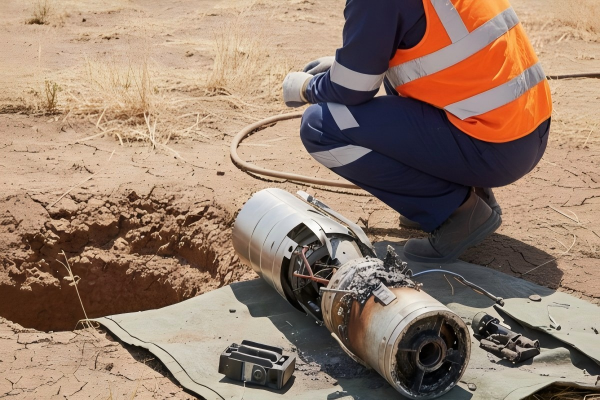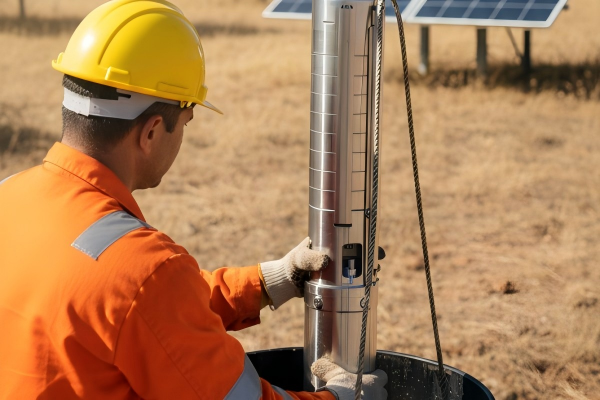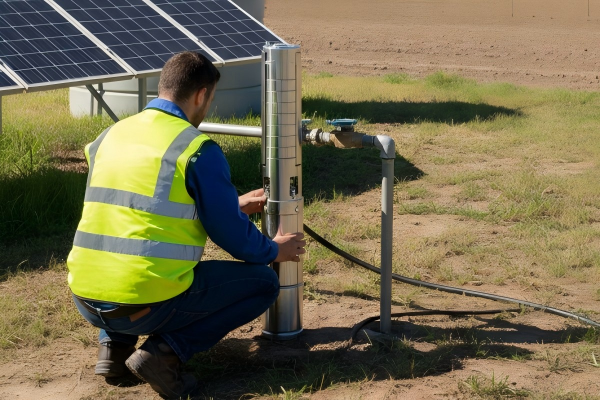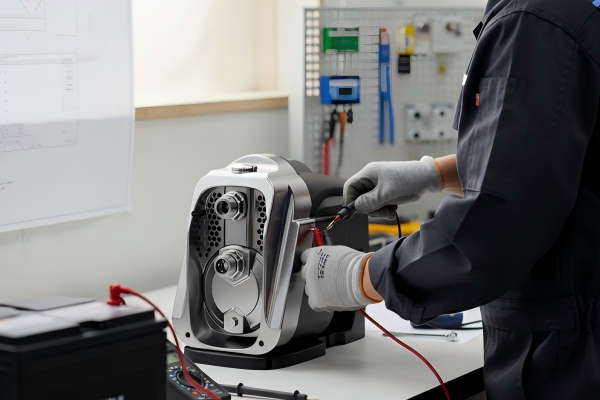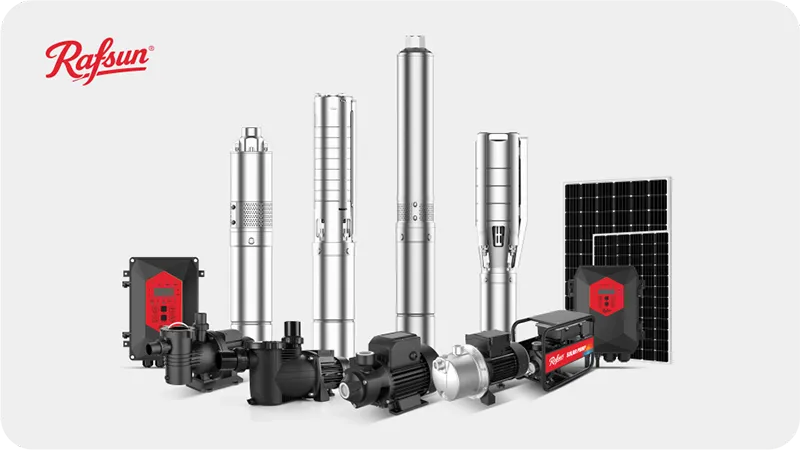Worried about a damp basement and the costs of water damage?
That musty smell signals bigger problems, threatening your home's foundation and value.
A sump pump is your proactive solution.
No, sump pumps generally do not decrease home value. In fact, they often increase it by protecting the home from water damage, mold, and foundation issues. A functional sump pump reassures buyers, making your home more attractive by promising a dry and secure basement.
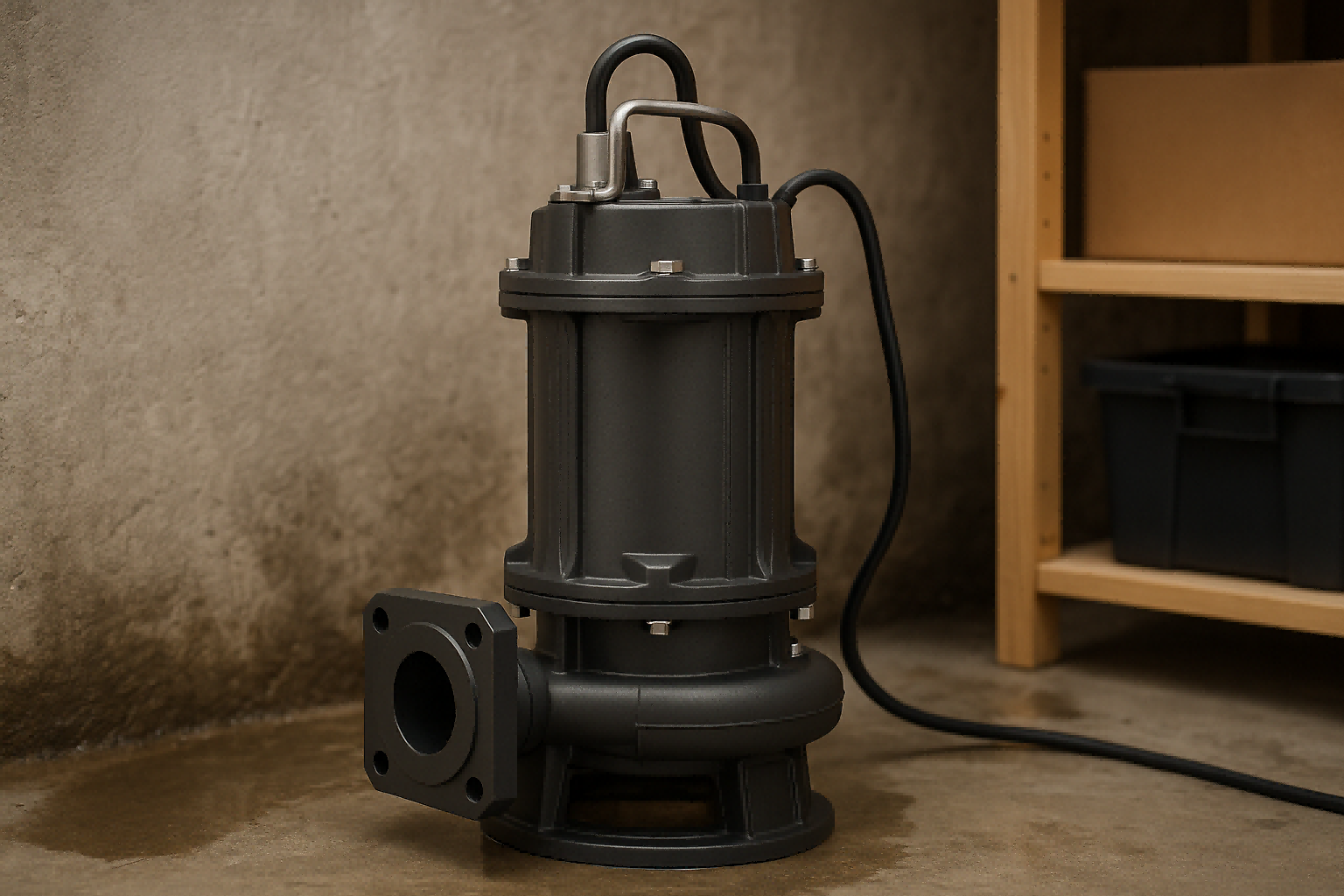
You might be thinking about selling your home.
Or perhaps you're just tired of dealing with a damp, uninviting basement.
The thought of installing a sump pump might raise a question: will this device, designed to solve a water problem, actually signal a bigger issue to potential buyers and lower my property's value? It's a valid concern.
Many homeowners worry that a sump pump is a red flag.
They fear it tells a story of constant flooding and expensive repairs.
However, the reality is often the complete opposite.
A sump pump isn't a sign of a problem; it's a sign of a professional and permanent solution.
This article will explore how a sump pump works to protect your home.
We will detail why it is seen as a valuable asset, not a liability.
Let's dive into why this crucial device is one of the best investments you can make for your property's health and market appeal.
What is a sump pump, and how does it work?
Is your basement at risk from rising groundwater during a storm?
This water can seep through your foundation, causing expensive damage and stress.
A sump pump is your home's automated defense system against flooding.
A sump pump is a submersible pump installed in a pit at the lowest point of a basement. When groundwater levels rise and water enters the pit, a float switch activates the pump. It then pumps the excess water out and away from your home's foundation, preventing floods.
Understanding the mechanics of a sump pump reveals its simple genius.
It’s an automated system designed for one purpose: keeping your basement dry.
Its operation is a perfect example of proactive home maintenance.
Let’s break down the key components and the process.
The Core Components
A sump pump system is more than just the pump itself.
It includes several critical parts working in unison.
- Sump Pit (or Basin): This is the hole dug at the lowest point in your basement or crawlspace. The pit collects the excess water from around the foundation.
- The Sump Pump: This is the heart of the system. It can be a submersible pump, which sits inside the pit, or a pedestal pump, where the motor is above the pit.
- Float Switch: This is the trigger. As water fills the pit, the float rises. When it reaches a predetermined level, it activates the pump motor.
- Discharge Pipe: Once activated, the pump pushes water out of the pit through this pipe. The pipe directs the water safely away from your home’s foundation.
- Check Valve: This is a one-way valve on the discharge pipe. It prevents the water that was just pumped out from flowing back into the pit.
The Operational Cycle
The process is straightforward and automatic.
- Water Collection: During heavy rain or snowmelt, groundwater levels rise. This water naturally flows towards the sump pit, which is at the lowest point.
- Activation: As water fills the pit, the float switch rises with the water level.
- Pumping: When the float hits its trigger point, the pump's motor turns on. The pump's impeller spins, creating pressure that forces the water up and out through the discharge pipe.
- Deactivation: As the water level in the pit drops, the float switch lowers. Once it reaches its "off" position, the pump motor shuts down.
- Reset: The system now waits, ready for the next time water levels rise.
Backup Systems for Total Peace of Mind
What happens if the power goes out during a severe storm?
A standard sump pump relies on your home's electricity.
This is a major vulnerability.
For complete protection, many homeowners install backup systems.
| Backup System Type | How It Works | Key Benefit |
|---|---|---|
| Battery Backup | A separate, smaller pump powered by a deep-cycle marine battery. It automatically activates if the main pump fails or loses power. | Provides protection during power outages, which are common during storms. |
| Water-Powered Backup | Uses your home's municipal water pressure to create a siphon that sucks water out of the pit. It requires no electricity. | Infinite runtime as long as you have water pressure. A great "last resort" option. |
These additions transform a standard system into a comprehensive flood prevention solution.
They offer an extra layer of security that both homeowners and potential buyers value highly.
What are sump pumps used for?
Do you worry about mold growth in your basement?
Or the risk of an electrical fire caused by flooding?
These hidden dangers can be more destructive than the water itself.
Sump pumps are used for more than just flood prevention. They are essential for preventing mold and mildew growth by keeping the basement dry. This improves indoor air quality and protects health. They also mitigate the risk of electrical fires by keeping water away from wiring and outlets.
The primary job of a sump pump is to prevent flooding.
But its benefits extend far beyond just managing water.
A dry basement is a foundation for a healthy and safe home.
By controlling moisture at its source, a sump pump offers three critical layers of protection.
1. Active Flood Prevention
This is the most obvious and immediate benefit.
If your home is in a region with heavy rainfall, a high water table, or poor soil drainage, it is vulnerable.
Water always follows the path of least resistance.
Without a sump pump, that path could be through cracks in your foundation and into your basement.
A sump pump intercepts this water.
It creates an even lower point for water to collect.
Then, it actively removes it before it can accumulate and cause damage.
This single function can save you thousands of dollars in restoration costs, ruined belongings, and structural repairs.
It provides peace of mind every time a storm rolls in.
2. Powerful Mold and Mildew Prevention
Mold and mildew thrive in damp, dark environments.
A basement with even low-level moisture is a perfect breeding ground.
Mold spores are a serious health concern.
They can trigger allergies, asthma attacks, and other respiratory problems.
A sump pump is one of your best defenses against mold.
By keeping the basement and crawlspace consistently dry, it eliminates the moist conditions that mold needs to grow.
This has several positive effects:
- Improved Indoor Air Quality: A dry basement means cleaner air circulates throughout your entire home.
- Elimination of Musty Odors: That classic "damp basement" smell is a sign of mold or mildew. A sump pump helps eliminate it.
- Healthier Living Environment: It protects your family from the health risks associated with long-term mold exposure.
3. Critical Fire Prevention
Water and electricity are a deadly combination.
During a basement flood, rising water can reach electrical outlets, fuse boxes, and the wiring for appliances like your furnace or water heater.
When water infiltrates these electrical systems, it can cause a short circuit.
A short circuit can easily spark and ignite an electrical fire.
This is a catastrophic event that can lead to the total loss of your home.
A sump pump helps prevent this scenario.
By keeping the basement floor dry, it ensures that water levels never reach your home's critical electrical components.
This often-overlooked benefit is a crucial aspect of overall home safety.
A sump pump isn't just about protecting your property from water; it's about protecting your family from fire.
Is a sump pump necessary in all homes?
Are you wondering if your home really needs a sump pump?
Not every house has issues with water intrusion in the basement.
Installing one unnecessarily would be an extra expense and maintenance task.
No, a sump pump is not necessary for every home. If you live in a dry area, are on high ground, and have never had issues with dampness or standing water in your basement, you likely don't need one. However, it's a must-have for homes in flood-prone areas.
Deciding whether to install a sump pump depends entirely on your home's specific situation and location.
It is not a one-size-fits-all solution.
Making the right choice requires evaluating several key factors.
For some, it's an essential appliance.
For others, it's an unnecessary complication.
Let's examine the signs that indicate a sump pump is a wise investment for your property.
Signs You Definitely Need a Sump Pump
If you answer "yes" to any of the following questions, installing a sump pump is highly recommended.
It is the best way to proactively protect your home.
- Have you had a previous flood? If your basement has flooded in the past, it will likely flood again. A sump pump is your first line of defense.
- Is your house on a low-lying plot? If your home is at the bottom of a hill or in a flat, low-lying area, water will naturally drain toward your foundation.
- Do you live in an area with heavy rain or snow? Locations that receive significant precipitation are at a higher risk of rising groundwater levels.
- Is your basement finished or used for storage? If you have invested in finishing your basement or use it to store valuable items, protecting it from water damage is non-negotiable.
- Do you notice dampness or musty smells? Even without visible standing water, persistent dampness on walls or a musty odor is a clear sign of a moisture problem that a sump pump can help resolve.
When You Might Not Need a Sump Pump
On the other hand, there are situations where a sump pump is probably not required.
If your home fits the following descriptions, you can likely do without one.
| Condition | Explanation | Implication for Sump Pump |
|---|---|---|
| High Ground Location | Your house is built on a hill or on ground that slopes away from the foundation on all sides. | Gravity naturally pulls water away from your home, making basement flooding very unlikely. |
| Arid Climate | You live in a desert or another region with very little annual rainfall. | The water table is likely very deep, and there is not enough precipitation to threaten your foundation. |
| No History of Water | You have lived in the home for many years and have never seen any sign of water intrusion, dampness, or moisture. | Your home's original construction and drainage are effectively managing any groundwater. |
The "Better Safe Than Sorry" Approach
Even if your home doesn't show obvious signs of needing a sump pump, there's an argument for installing one as a form of insurance.
Climate patterns are changing.
A "once-in-a-century" storm might happen more frequently.
A sump pump can be a relatively low-cost investment compared to the potential cost of a basement flood.
For many homeowners, the peace of mind that comes with knowing they are protected against a potential disaster is worth the initial cost and maintenance.
It is an investment in the long-term security of your property.
How a Sump Pump Impacts Home Value
Are you worried that a sump pump will scare off potential buyers?
Some think it’s a red flag that screams "this house has water problems."
This perception could make you hesitate to install a necessary device.
A sump pump increases market value. It shows buyers that a known risk (groundwater) has been professionally and proactively managed. It turns a potential negative into a positive selling point, assuring them of a dry, usable, and protected basement, which buyers value highly.
When selling a home, your goal is to present it in the best possible light.
You want to highlight its strengths and reassure buyers about any potential weaknesses.
A sump pump plays a fascinating dual role in this process.
Initially, it might seem like a negative.
But with the right perspective, it becomes a powerful asset that can increase your home's appeal and final sale price.
Turning a "Red Flag" into a Green Light
A savvy buyer or home inspector will look for signs of water damage in a basement.
These can include stains on the walls, efflorescence (a white, powdery residue), or a musty smell.
If these signs are present without a sump pump, that is a huge red flag.
It tells the buyer that there is an unaddressed problem they will have to pay to fix.
Now, consider the same basement with a functional sump pump.
The presence of the pump tells a different story.
It says: "Yes, this area is pro-active about managing groundwater, and a professional solution is already in place to keep the home safe and dry."
It shows you, the homeowner, have been responsible and have invested in protecting the property's structural integrity.
The Value Proposition for Buyers
From a buyer’s perspective, a home with a well-maintained sump pump offers several tangible benefits.
These benefits directly translate into a higher perceived value.
| Buyer Benefit | Explanation | Financial Impact |
|---|---|---|
| Instant Peace of Mind | The buyer knows the basement is protected from Day 1. They don't have to worry every time it rains. | Saves the buyer the immediate cost (often thousands of dollars) and hassle of installing a system themselves. |
| Usable Basement Space | A dry basement can be used for storage, a home gym, an office, or a finished living area. A damp basement is wasted space. | Increases the home's total usable square footage, which is a major factor in valuation. |
| Health and Safety | The buyer is assured of better indoor air quality and no hidden mold problems. | Avoids potential future health issues and costly mold remediation expenses. |
| Foundation Protection | The buyer knows the home's foundation is protected from the immense pressure and damage that water can cause. | Protects the single most important and expensive structural component of the home. |
Highlighting the System as a Feature
During the selling process, don't hide the sump pump.
Feature it.
An estate agent can present it as a premium feature.
Especially if you have a high-quality system with a battery backup.
You can explain: "This home is equipped with a comprehensive water management system to ensure the basement remains perfectly dry year-round, protecting your investment and providing additional living and storage space."
This reframes the sump pump from a sign of a problem into a symbol of smart, proactive homeownership.
It becomes a selling point, not a liability.
Conclusion
A well-maintained sump pump is a valuable asset.
It protects your home and reassures buyers, ultimately increasing your property's market value.
FAQs
What is the life expectancy of a sump pump?
Most sump pumps last about 7 to 10 years.
Regular maintenance and the quality of the pump can extend its lifespan.
How much does a sump pump cost?
The pump itself can cost a few hundred dollars.
Professional installation, including digging the pit, can bring the total cost to a few thousand dollars.
Does a sump pump use a lot of electricity?
No, a sump pump only runs when needed.
Its electricity consumption is minimal for most homes, running only during heavy rain.
Can a sump pump be loud?
Submersible pumps are generally very quiet since they are underwater.
Pedestal pumps can be a bit louder as the motor is exposed.
Do I need to disclose a sump pump when selling my house?
Yes, it's best to be transparent.
Disclose the sump pump and frame it as a positive feature that protects the home.
How do I test my sump pump?
Pour a bucket of water into the sump pit.
The pump should turn on, remove the water, and then shut off automatically.
What maintenance does a sump pump require?
You should test it every few months.
Clean the pit and the pump annually to ensure the float switch moves freely.
Can I install a sump pump myself?
While possible for those with advanced DIY skills, professional installation is recommended.
Proper placement and drainage are critical for it to work effectively.


